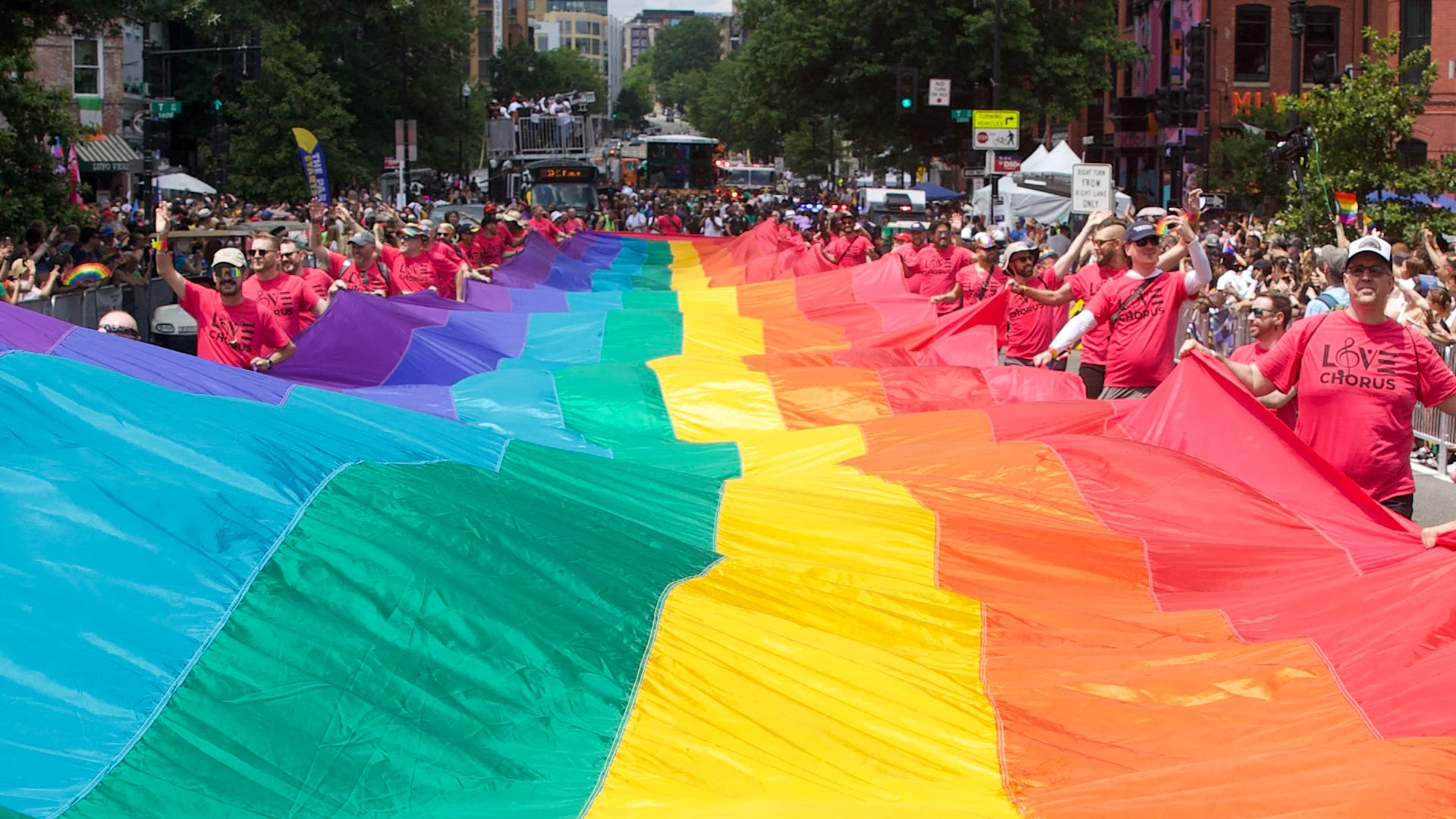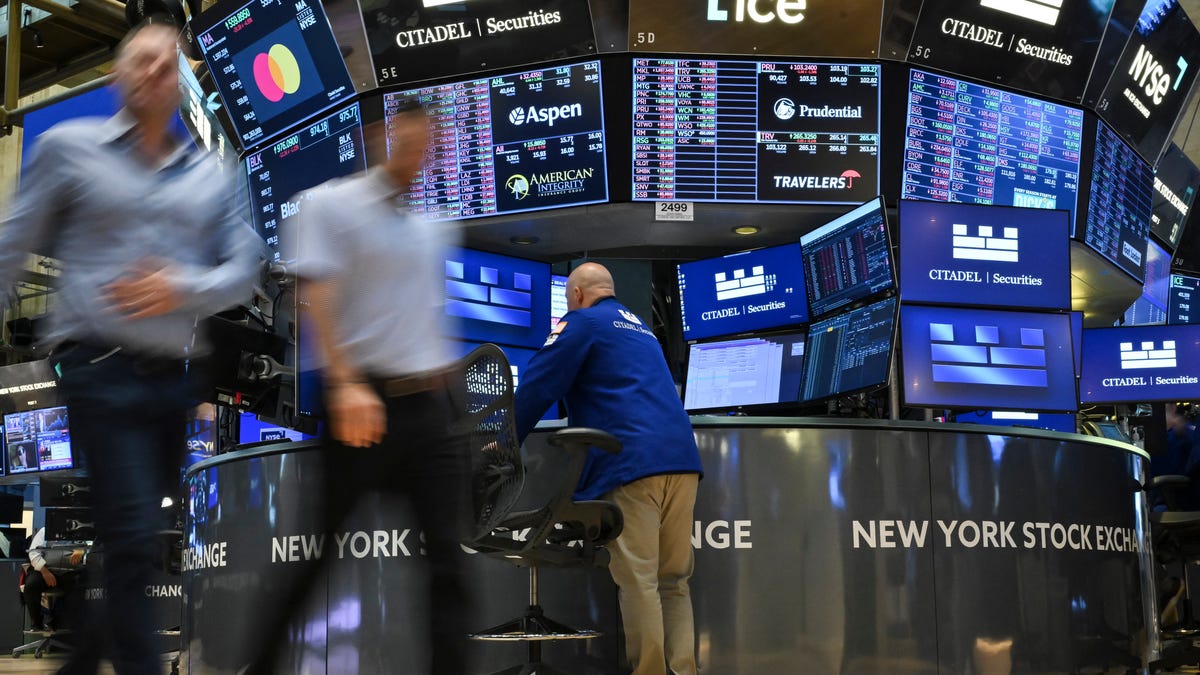Anti-DEI fervor sweeping Washington and Republican-led statehouses could drive openly gay, trans and nonbinary executives back into hiding. “It’s dangerous to be who you are now.”

WorldPride marched through DC for Pride month, in defiance of Trump
WorldPride, The global festival promoting LGBTQ+ visibility, held it’s anniversary parade in D.C.
Five years ago, a technology executive landed a seat on the board of directors of a big corporation.
As a person of color who identifies as nonbinary, they were thrilled their new company not only embraced their professional credentials, it touted their gender identity as well.
“My company was proud to identify me as nonbinary,” they told USA TODAY. “A lot of employees would send me messages telling how important that was to them. Whether they were male, female, trans, anything, people felt really proud there was a space for me to be myself and to be at this level of the organization.”
But with attacks on diversity, equity and inclusion spiking as a polarized nation hurtled toward the 2024 election, corporations retreated from public expressions of support for gay, transgender and nonbinary rights and their company did not seem as proud as it once was.
Even before President Donald Trump ordered federal agencies to recognize only two sexes – male and female – the corporate director read the mood in the boardroom and made the difficult decision to no longer self-identify.
“I have been incredibly out my entire life. I never felt like there was going to be a consequence that I couldn’t handle. But I do feel particularly vulnerable now,” they told USA TODAY on the condition of anonymity for fear of putting their livelihood at risk.
“I genuinely feel being nonbinary, it’s dangerous to be who you are now,” they said. “And it’s a terrible feeling.”
After years of civil rights advances and hard-fought wins in the workplace, being openly gay, trans or nonbinary in corporate America just got tougher – especially at the top.
For decades, plum gigs at the top of corporations were mostly reserved for men with the right pedigrees and connections. But in recent years, the doors of the C-suite have begun to crack open for executives from diverse backgrounds, including those who are openly LGBTQ+.
As political winds shift in Washington and in Republican-led statehouses across the country, controversies over Bud Light beer and Target stores and threats of boycotts from anti-DEI activists have rattled corporate America.
Now some LGBTQ+ corporate leaders fear the DEI backlash will drive more professionals into the corner closet.
“With the weaponization of DEI, I worry, because I think a lot of people are going to go to the camp of ‘I’m not going to tell anybody,’” said Myrna Soto, a veteran executive who is a Latina and gay and serves on several public boards. “That’s going to set us back.”
DEI attacks threaten LGBTQ+ representation
Nearly 1 in 10 adults in the United States and almost one-quarter of adults in Generation Z – ages 18 to 27 – identify as LGBTQ+, according to the most recent data from Gallup.
What’s more, LGBTQ+ people have an estimated $1.4 trillion in annual spending power.
Yet the demographics of corporate leadership have not kept up with a changing nation, particularly outside the fashion, media and entertainment industries.
Few who are open about their sexual orientation or gender identity – and even fewer gay, nonbinary and trans people of color – serve in the executive suite and on boards of directors.
Less than a dozen LGBTQ+ executives hold the top jobs in the nation’s 1,000 largest companies, according to DiversIQ, which tracks corporate diversity data. Just two are transgender, the latest data shows.
Their ranks are sparse at the board level as well. LGBTQ+ executives occupy about 1% of S&P 500 board seats. That figure has barely budged in five years.
The reasons are many. Even as companies rushed to diversify their leadership in the aftermath of George Floyd’s 2020 murder, increasing LGBTQ+ representation was never the priority it should have been, said Fabrice Houdart, founder of the Association of LGBTQ+ Corporate Directors.
The invisible yet nearly impenetrable barrier that for decades limited access to executive suites and boardrooms for women and people of color has presented similar roadblocks for LGBTQ+ professionals.
Persistently high rates of discrimination and harassment have contributed to people hiding their sexual orientation or gender or simply avoiding jobs that come with that level of scrutiny.
One in 3 LGBTQ+ professionals in the U.S. are not out to anyone at work, according to the Coqual think tank which advocates for diversity, equity, inclusion and belonging in the workplace. Less than half – 43% – of these professionals worldwide say they feel safe being out at work.
New policy: Don’t ask, don’t tell
In recent years, change seemed afoot. Companies began to encourage self-reporting and started tracking LGBTQ+ representation – in part because of new rules prodding corporations to disclose the demographics of their leadership.
The Nasdaq required thousands of public companies to report each year on the diversity of their boards. By 2024, the majority of companies trading on the stock exchange disclosed data on LGBTQ+ board members, said Josh Ramer, co-founder of DiversIQ.
But those rules were abandoned in December amid the DEI backlash, leading to “large and immediate changes,” Ramer said. According to the most recent DiversIQ data, the share of S&P 1,500 companies disclosing LGBTQ+ directors fell from about 31% in 2024 to nearly 9% in 2025.
“The repeal of Nasdaq was hard. It was the only benchmark we had,” Houdart said. “It will now be very difficult to see if we are making progress.”
He and others fear a sharp reversal from corporate America’s embrace of LGBTQ+ rights, the result of decades of protests and boycotts from activists that transformed once indifferent, even hostile, companies into powerful allies that used their influence to promote LGBTQ+ causes. For years now, they have offered more inclusive benefits and policies to appeal to employees and customers and to demonstrate to shareholders their understanding of a lucrative market.
Then came the attacks. Under pressure from anti-DEI activist Robby Starbuck, Ford, Lowe’s and other major brands distanced themselves from the Human Rights Campaign, the nation’s largest LGBTQ advocacy group, and withdrew from its benchmark index that measures how friendly a company’s policies are to LGBTQ+ people.
In the current political climate, Houdart predicts companies will become more cautious about appointing LGBTQ+ executives and, when they do, they won’t be as vocal about it.
Scanning press releases announcing executive appointments from the last year, Houdart said he did not spot a single one that hinted at an executive’s sexual orientation or gender identity.
“What that means is that extremely powerful companies are making decisions for the future of humankind without adding any LGBTQ+ voices and, in a way, that’s a guarantee to have a future that is perpetuating exclusion,” he said.
Gay leaders make case for diversity
That prospect troubles seasoned executives who invest time and energy mentoring the next generation to build diverse leadership teams.
Torrence Boone, who is Black and came out when he was 18, said he has always seen his identity as an advantage in his own career and for the companies he has served.
“I’ve become, in some ways, a picture of what’s possible when there is that investment and commitment,” he said.
Raised by a single mother in a poor neighborhood in Baltimore, Boone received a scholarship to a prestigious New England boarding school with the help of a school counselor. After receiving an economics degree from Stanford, he attended Harvard for an MBA.
Some of his gay classmates hid their sexuality after business school, afraid their careers would be compromised if anyone found out. Not Boone.
“It was scary, but I realized it was a great filter. Either people thought it was cool and courageous or they didn’t support me,” he said. “I just wasn’t going to play that game. I got enough positive reinforcement along the way that it made me feel like I didn’t have to.”
Boone, 56, scaled the corporate world with a hyperfocus on results and impact, seeking out challenging assignments and organizations that prized diversity and meritocracy.
“In my experience, excellence is the strongest ballast against bias,” he said.
Today, he is a top Google executive and sits on the Macy’s board.
“If anything, this current context has lit a fire and everyone is rallying to make sure that we don’t lose those gains and that we continue the momentum,” Boone said. “No one can predict the future but I feel confident that the talent is not going away and the best companies will continue to recruit and develop that talent.”
That’s what Rob Smith believes, too.
Smith, 59, came out at the start of his career in the retail industry at 23, trading preppy suits for pierced ears and more colorful outfits. But he still made sure to speak in a deeper voice, hit the links and read the sports pages, all just to fit in.
Despite growing political pressure, corporations won’t turn back the clock on diversity because it would harm their businesses, said Smith, a veteran of Macy’s, Victoria’s Secret and Levi’s who sits on the board of Steve Madden and runs The Phluid Project, a gender-free fashion brand.
“I don’t think we will be going forward with the same momentum we have the last five years but I don’t think we will be going backwards,” he said. “I’m beginning to see the community uniting and building a coalition of resistance. We’ve done it before.”








